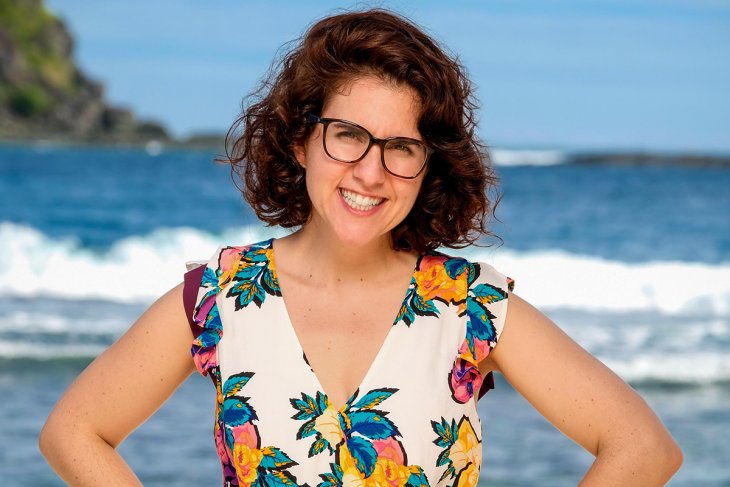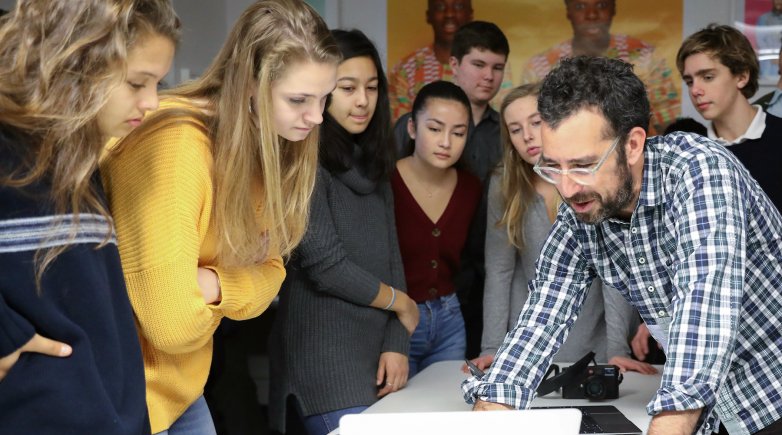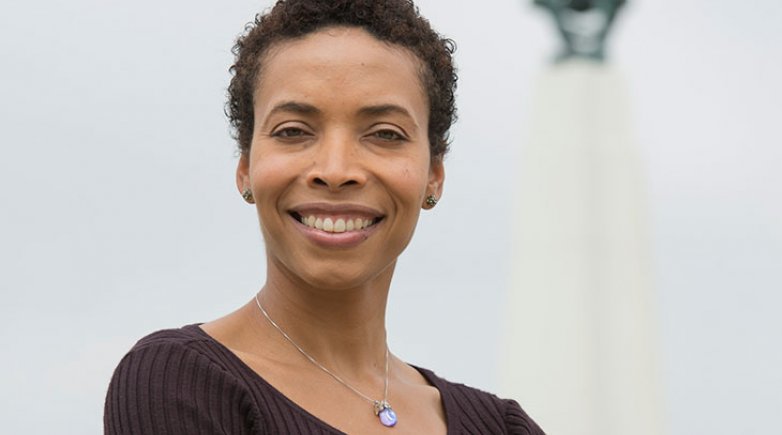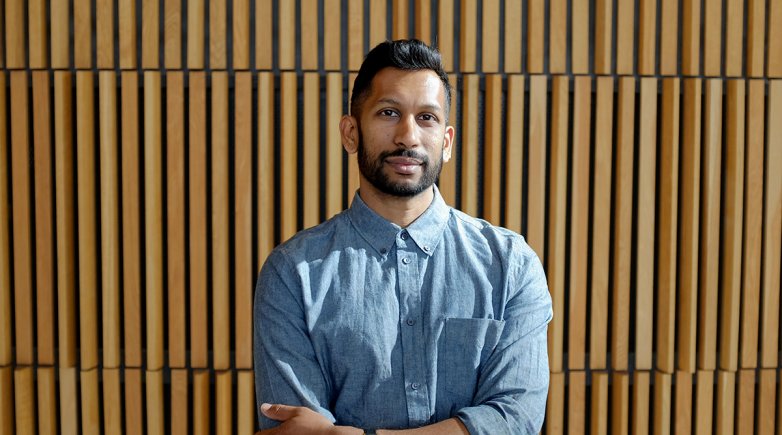Aubry Bracco

"My Harkness training wasn’t just a skill, it was a superpower."
Editor’s note: Since this profile was published, Bracco competed for a third time on the CBS reality TV show "Survivor: Edge of Extinction."
Mornings in the Cambodian jungle are like a scene out of Jurassic Park. By noon the air is as thick and humid as pea soup. Come nightfall, the mosquitoes are as aggressive as parents trying to score the hottest toy during the holiday season. But, in April and May of 2015, when I actually lived in the Cambodia jungle, the mosquitoes weren’t the only creatures with bite — the humans were out to get me too.
I was on the Cambodia island of Koh Rong to compete for the first time on the CBS television show "Survivor." Being a contestant had actually been a dream of mine since the show first aired way back in the summer of 2000, just before I started my prep year at PEA. For those who’ve never seen "Survivor," essentially the premise is this: 18 Americans jump off a boat with only the clothing on their backs, are marooned on a remote island for up to 39 days, and struggle to survive — competing in challenges and voting each other out one-by-one, hoping to be the sole remaining contestant and win $1 million.
Even though I was as far away from Exeter as I could possibly be, doing something that wouldn’t remotely fall under the category of academic, my maneuvering and planning to survive smelled distinctly of the Academy Building and Phillips Hall.
What I took from the Harkness Table to Tribal Council
I see you: social networking
On "Survivor," my fate was in the hands of a diverse group of people. This wasn’t something new to me. My ability to assemble "Goonies-esque" squads of allies had become somewhat my specialty, one borne 15 years earlier around the Harkness table. At Exeter, I was a classic floater. A captain of the field hockey team, I’d run back to campus during my free G format to the music building and get in a half-hour practice on the harp before my H format lesson. And, somehow, I always managed to find just the right friends to help me through the terror that was AP Chemistry.
I’d always been this kind of person — the type to connect with anyone from any corner of the world. The Harkness method challenged me to harness my ability to socialize with others in a more conscious way; hone it so it remained authentic to my own personality; and infuse it into each and every interaction I encountered on my life’s journey, including those on "Survivor."
I hear you: listening
In this world full of yelling, noise and social media updates, I still get nostalgic for those days in English class in Phillips Hall. A full 50 minutes with nothing but a table to lean on, a book to reference, 12 other mouths and sets of ears — imagine that!
On "Survivor," I could imagine that. With the campfire as our Harkness table and fellow tribemates’ tall tales of lives back home as replacements for novels, we had fat blocks upon fat blocks of time to talk and/or listen.
It was then I realized just how artful and special the brand of listening I learned at Exeter actually was.
Around the Harkness table, I would often speak. But first, I listened. On "Survivor," I noticed I wasn’t just listening to understand the words other people were saying. I was listening to understand what their silences meant too. I could tell who I wanted to work with based on who I could sit with comfortably in silence.
Enter Cydney, a bodybuilder from Atlanta. We were both able to communicate in our observance of the space between words. We’ve all heard of the Harkness Warrior. For every Harkness Warrior, there are the Stealth Bombers — those who find their common ground with classmates in the spaces and silences, speaking only when the time is just right. That was Cydney and me.
I feel you: emotional intelligence
It’s a funny thing when you’ve been stripped of everything — food, shelter, family, adequate clothing — your senses start to shift. As my "Survivor" experience crept out of the “days” and into the “weeks” category, I (surprisingly) lost the ability to smell the stench of my fellow filthy castaways and gained the ability to physically feel what they were feeling.
Weeks into the game, I felt the energy of Tai, a gardener from San Francisco. When I met him, his allegiance was with the majority alliance that was aiming to get me out of the game. I quickly realized, however, that the brashness of my opponents was in opposition to the peaceful way Tai moved through the universe, a way I strove to move too. The only way to save myself in the game was to identify that energetic congruency with Tai — a person with a very different background — and articulate it to him so he would leave his alliance and work with me.
Though I didn’t know it at the time, this was a skill I first learned during upper- and senior-year English classes, when conversations meandered into profoundly complex territories like politics, religion and race. Beyond listening, Exeter taught me how to feel the emotional texture around the Harkness table; to empathize with what I was able to pick up; and communicate on a profoundly human level with anyone.
I will not quit: tenacity
This one’s a no-brainer. I knew the second [Principal] Ty Tingley handed me my diploma in May 2004. There’s no time to dwell on a bad day, and there’s certainly no time to complain. For every terrible performance trying to explain Alex in the Desert to a math class, there are three more AP Chemistry tests to get through before winter thaw. "Survivor" wasn’t very much unlike the roller coaster that was Exeter. On the show, I had a panic attack on the second day. I had an infection on my leg. I lost several major allies. Name an obstacle or possible parasite and I had it.
But Exeter taught me that when my logic tells me the tank is empty, it is not. When it feels like a relationship or conversation around the Harkness table can’t possibly take another turn, it will. Commit. Persevere. Move forward with moxie and doors will open to places you never thought possible.
I placed second on my first season of "Survivor" and fifth on my second season, lasting a total of 76 days. I did go back to play a third time, but you’ll have to tune in for more on that.
Through it all, I realized my Harkness training wasn’t just a skill. It was a superpower. It’s funny how you don’t realize how one experience has affected you until you’ve given it some distance. I’d been a listener, empath and hard worker my entire life, but "Survivor" taught me that Exeter had transformed these innate gifts into tools with which I could better navigate the world and connect with the humans I meet.
— Aubry Bracco '04
Editor's note: This article first appeared in the spring 2019 issue of The Exeter Bulletin.



